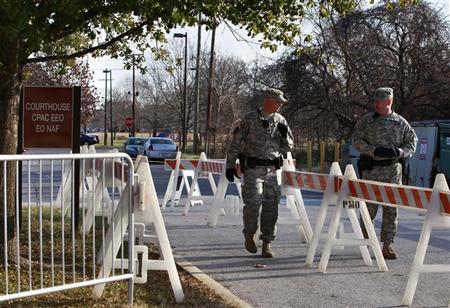(Reuters) – Democratic and Republican intelligence experts in Congress are joining forces to condemn a series of jaw-dropping intelligence leaks which some Republicans charge are timed to boost President Barack Obama’s re-election campaign.

But castigating leakers and questioning their motives may be a lot easier than coming up with remedies that might make leaking more difficult and risky.
On Wednesday, the leadership from both parties of the Senate and House Intelligence Committees issued a rare joint statement deploring recent leaks which have included reports on U.S. cyber warfare against Iran, procedures for targeting militants with drones, and the existence of a double-agent who penetrated a militant group in Yemen.
The committee leaders said their panels would consider legislation to “strengthen authorities and procedures with respect to access to classified information and disclosure of it, as well as to ensure that criminal and administrative measures are taken each time sensitive information is improperly disclosed.”
The pending intelligence authorization bill could become a vehicle for new efforts to tighten laws against leakers, lawmakers said.
The revelations of U.S. secrets in the media have sparked a bitter presidential election-season exchange of words.
Republican Senator John McCain on Tuesday accused the Obama administration of leaking classified information for political advantage to burnish the Democratic president’s national security credentials.
This drew a sharp reaction from the White House.
“Any suggestion that this administration has authorized intentional leaks of classified information for political gain is grossly irresponsible,” White House press secretary Jay Carney said, adding that officials take all necessary steps to protect sensitive data.
ACTUALLY DOING SOMETHING
But however much both sides condemn leaks, talking about them is likely to prove much easier than actually doing something to curb unauthorized disclosures.
Historically even minor efforts to tighten laws against leakers have met with strong resistance from whistleblower advocates who contend it could be used to conceal government wrong-doing.
For example, a measure was blocked that would have let government agencies revoke pension benefits of former officials who violated rules that books or articles they published after leaving the government first be vetted by appropriate agency review boards.
During the Clinton administration, Congress passed a bill that would have declared it illegal for anyone to disclose without authorization information they knew to be classified. A former government official said the Justice Department backed the law, but ultimately President Bill Clinton vetoed it.
In 2002, John Ashcroft, President George W. Bush’s attorney general, sent a nine-page letter to then-House of Representatives Speaker Dennis Hastert suggesting steps to crack down on leaks. They included requiring federal agencies to be more aggressive in reporting classified information leaks to the Justice Department, and tightening non-disclosure agreements signed by government employees to include penalties for possible perjury.
It is unclear how many of his recommendations were adopted.
The Obama administration has been much more aggressive than its predecessor in prosecuting government officials accused of leaking classified information to reporters.
But, the current administration has largely avoided confronting journalists who obtain classified information – a step secrecy experts say prosecutors almost certainly would have to take if the government really wanted to put a lid on leaks. That step is full of legal and political peril, however, as it runs into the Constitution’s free press protections.
Following the wholesale leak of low-level classified documents to WikiLeaks, including field reports from U.S. military personnel in Afghanistan and Iraq and cables filed by U.S. diplomats around the world, the White House did set up a high-level task force to tighten control over classified information.
But if the latest congressional complaints are any indication, leaks are as frequent as ever. The fact that they are occurring in an election year means that the issue could attract the kind of attention that makes both politicians and the media uncomfortable.
(Editing by Warren Strobel and Vicki Allen)





